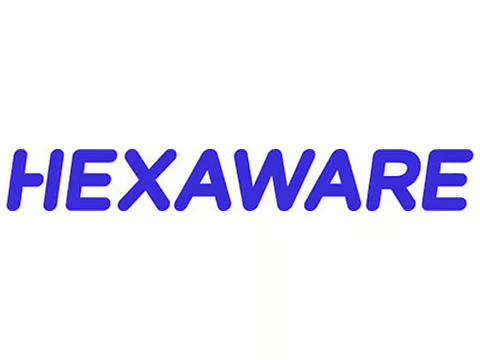
₹ 14868
₹674- ₹708
21
₹745
5

14 Feb 2025
18 Feb 2025
19 Feb 2025
Application Details
Hexaware Technologies' IPO is scheduled to open on February 12, 2025, and close on February 14, 2025, with a listing date set for February 19, 2025. The IPO is a Book Built Issue and will be listed on both BSE and NSE. The price band for the issue is set between ₹674 to ₹708 per share, with a face value of ₹1 per share. Investors can apply for a minimum lot size of 21 shares, and in multiples thereafter.
The total issue size consists of 12,35,87,570 shares, aggregating up to ₹8,750 crore, entirely through an Offer for Sale. Employees are eligible for a discount of ₹67 per share. The IPO allocation is structured with not more than 50% of the net offer reserved for Qualified Institutional Buyers (QIBs), at least 35% for retail investors, and a minimum of 15% for Non-Institutional Investors (NIIs), which includes High Net Worth Individuals (HNIs).
The application process follows a set timeline, with the basis of allotment being finalized on February 17, 2025. Refunds will be initiated on February 18, 2025, and the shares will be credited to demat accounts on the same day. The cut-off time for UPI mandate confirmation is 5 PM on February 14, 2025. Investment limits vary by investor category, with retail investors allowed to apply for a minimum of 21 shares amounting to ₹14,868 and a maximum of 273 shares worth ₹1,93,284. Small HNIs (S-HNIs) can invest in a minimum of 322 shares for ₹2,08,152, while the maximum investment for this category is 1,587 shares worth ₹9,96,156. Large HNIs (B-HNIs) have a minimum bid requirement of 1,610 shares amounting to ₹10,11,024.
About Hexaware Technologies Limited
Company Overview
Incorporated in 1992, Hexaware Technologies Limited is a global digital and technology services company with artificial intelligence (AI) at its core. The company leverages advanced technology to provide innovative solutions, helping customers adapt, innovate, and enhance their operations in an AI-driven world.
Hexaware has established a strong presence through major offshore delivery centers in India, including Chennai, Pune, Bengaluru, and Noida, along with a center in Sri Lanka. As part of its expansion strategy, the company is targeting Tier 2 cities and plans to open a new center in Ahmedabad. As of September 30, 2024, Hexaware operates 39 delivery centers and 16 offices across the Americas, Europe, and APAC, supporting its global client base.
Business Segments
Hexaware provides services across six key industries:
- Financial Services – Offering AI-driven solutions for banking, wealth management, and capital markets.
- Healthcare & Insurance – Enhancing patient care and insurance operations with advanced digital technologies.
- Manufacturing & Consumer – Driving automation and efficiency in supply chain, production, and retail.
- Hi-Tech & Professional Services – Empowering businesses with cutting-edge IT, engineering, and consulting solutions.
- Banking – Delivering secure, scalable, and agile digital banking solutions.
- Travel & Transportation – Optimizing operations, customer experiences, and logistics through AI and cloud-based solutions.
FAQ
IPO stands for "Initial Public Offering." It's the process through which a privately-held company becomes publicly traded by offering its shares to the general public and listing them on a stock exchange for trading. This allows the company to raise capital from investors and grants individuals and institutions the opportunity to invest in and own a portion of the company.
The life cycle of an IPO, or Initial Public Offering, begins with a company's decision to go public. It involves hiring underwriters, registering with regulatory authorities, determining the IPO price, marketing to investors, and the subscription period where investors place orders for shares. After allocation and listing, shares become publicly tradable, and the company enters the secondary market. Ongoing reporting and corporate governance are crucial as the company continues to operate as a publicly-traded entity. The IPO aims to raise capital for growth and provides investors with opportunities to trade shares in the company.
An IPO (Initial Public Offering) is when a private company goes public by selling shares to the public. Investors buy these shares, giving them ownership in the company. It's a way for companies to raise capital and expand. The process involves underwriters, regulatory filings, setting the IPO price, and marketing to investors. After the IPO, shares can be traded on a stock exchange. IPOs offer opportunities and risks, so investors should research and consider carefully.
"Upcoming IPOs" refers to initial public offerings that have been announced by private companies but have not yet occurred. These are companies that plan to go public in the near future by issuing shares to the public and listing them on a stock exchange. Investors often keep an eye on upcoming IPOs as they represent opportunities to invest in companies at their early stages of public trading, potentially capturing growth potential. These offerings are typically accompanied by significant media and investor attention as they approach their launch dates.
 Download
Download